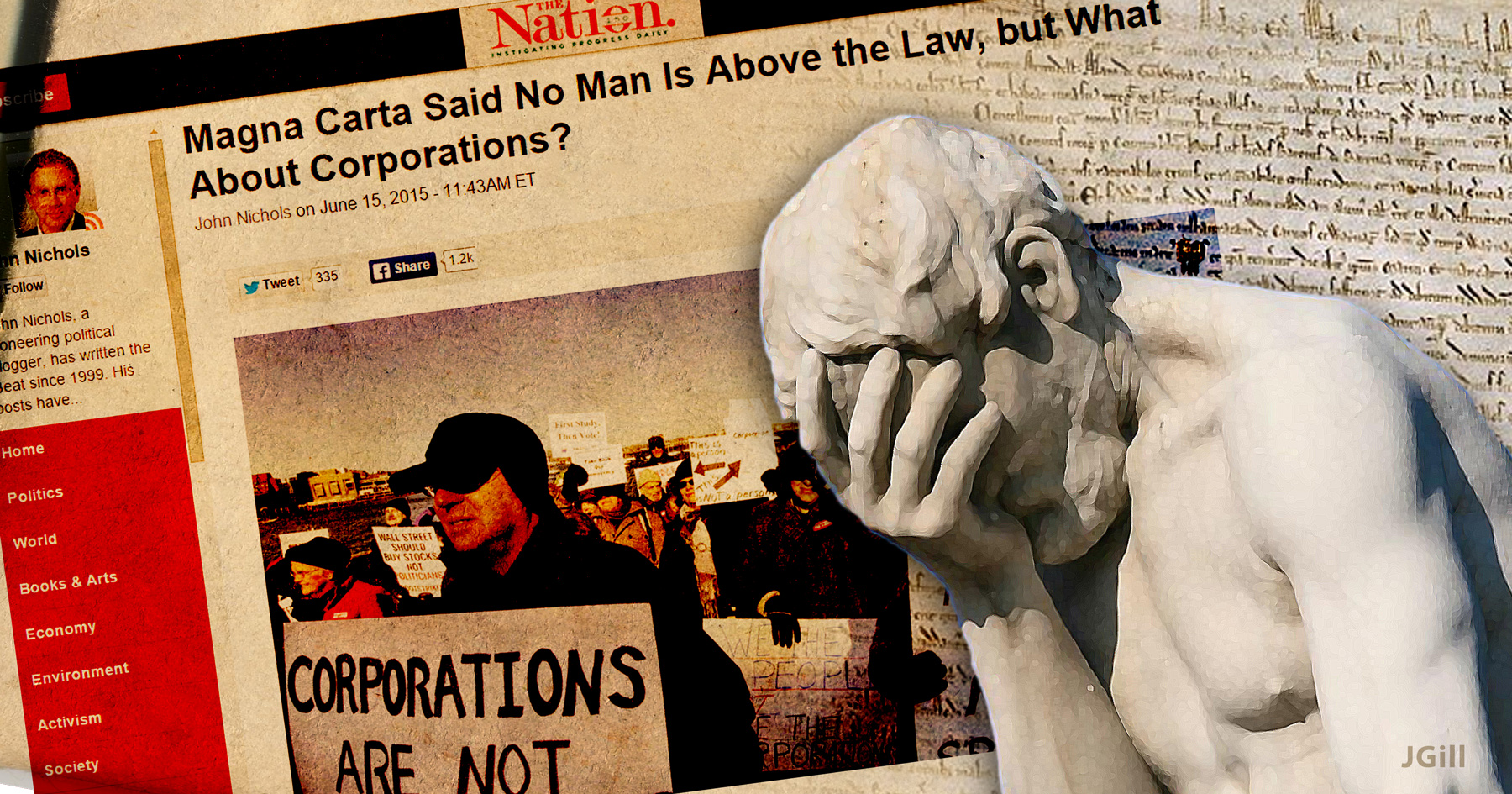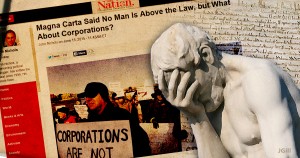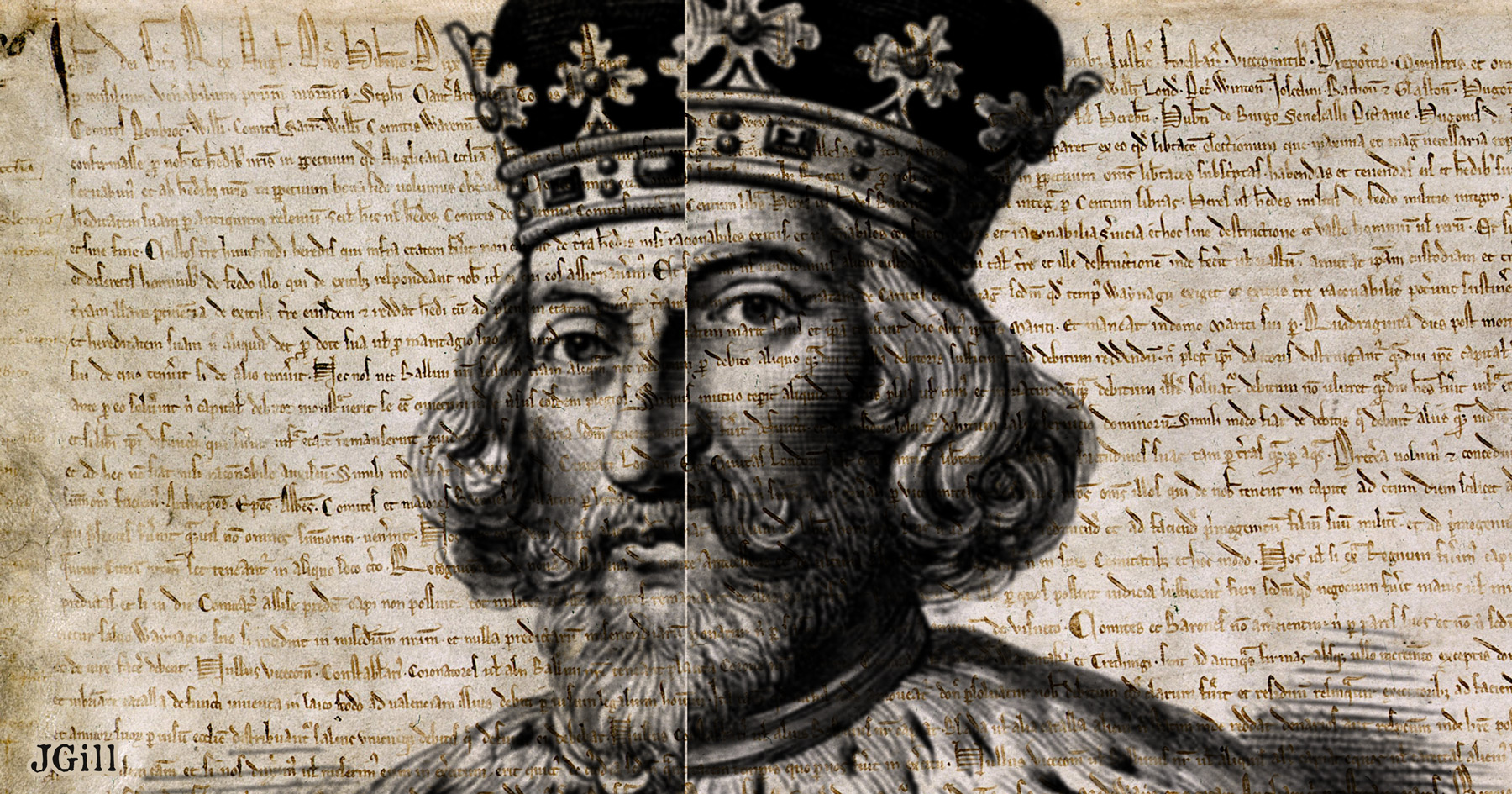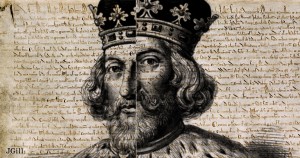Celebrating the 800th anniversary of the Magna Carta Libertatum this week, I noted how a document intended to serve the very upper classes, by limiting each others’ powers, led to liberty for all.
The Nation, on the other hand, used it to excoriate the Citizens United ruling.
“Magna Carta reminds us that no man is above the law,” wrote John Nichols on Monday. “But it should not be imagined that Magna Carta established democracy, or anything akin to it.”
Of course the Magna Carta did not establish democracy. No one said it did. And neither Britain nor America has pure democracy, if you define it … in Nichols fashion. What is he driving at?
If we respect the notion that the rule of law must apply to all … then surely it must apply to corporations.
And, surely, the best celebration of those premises in the United States must be the extension of the movement to amend the US Constitution to declare that corporations are not people, money is not speech, and citizens and their elected representatives have the authority to organize elections — and systems of governance — where our votes matter more than their dollars.
Sure, Mr. Nichols, corporations shouldn’t be above the law. But they shouldn’t be below it, either. And in America we have rights to free speech and press. Those rights “surely … must apply to corporations.”
Let’s increase the liberating powers of democracy: open up ballot access, de-privilege incumbents, count votes in a non-mere-plurality-wins fashion.
But let’s not throw out equal rights under the law, even in the name of democracy.
This is Common Sense. I’m Paul Jacob.



